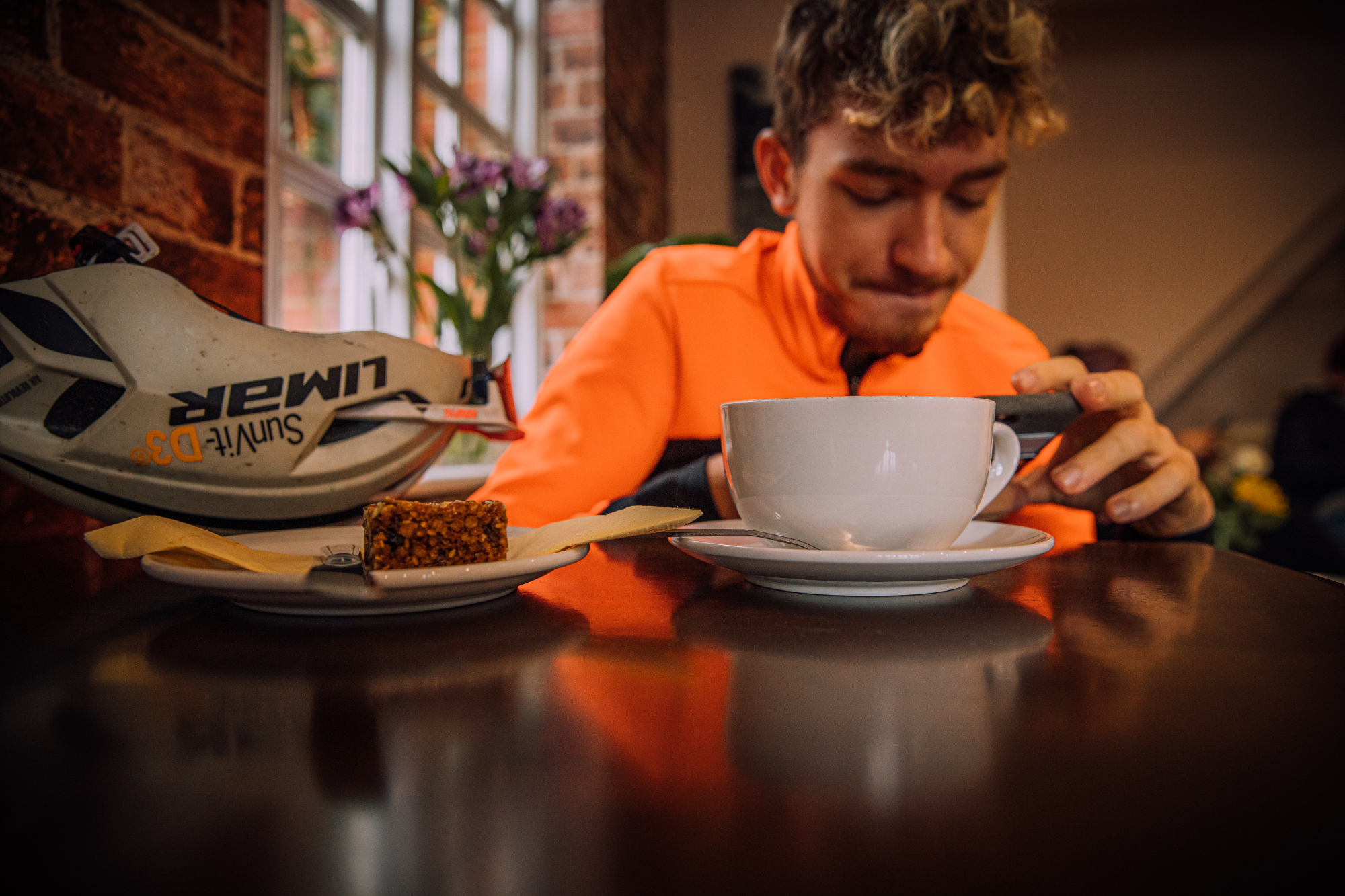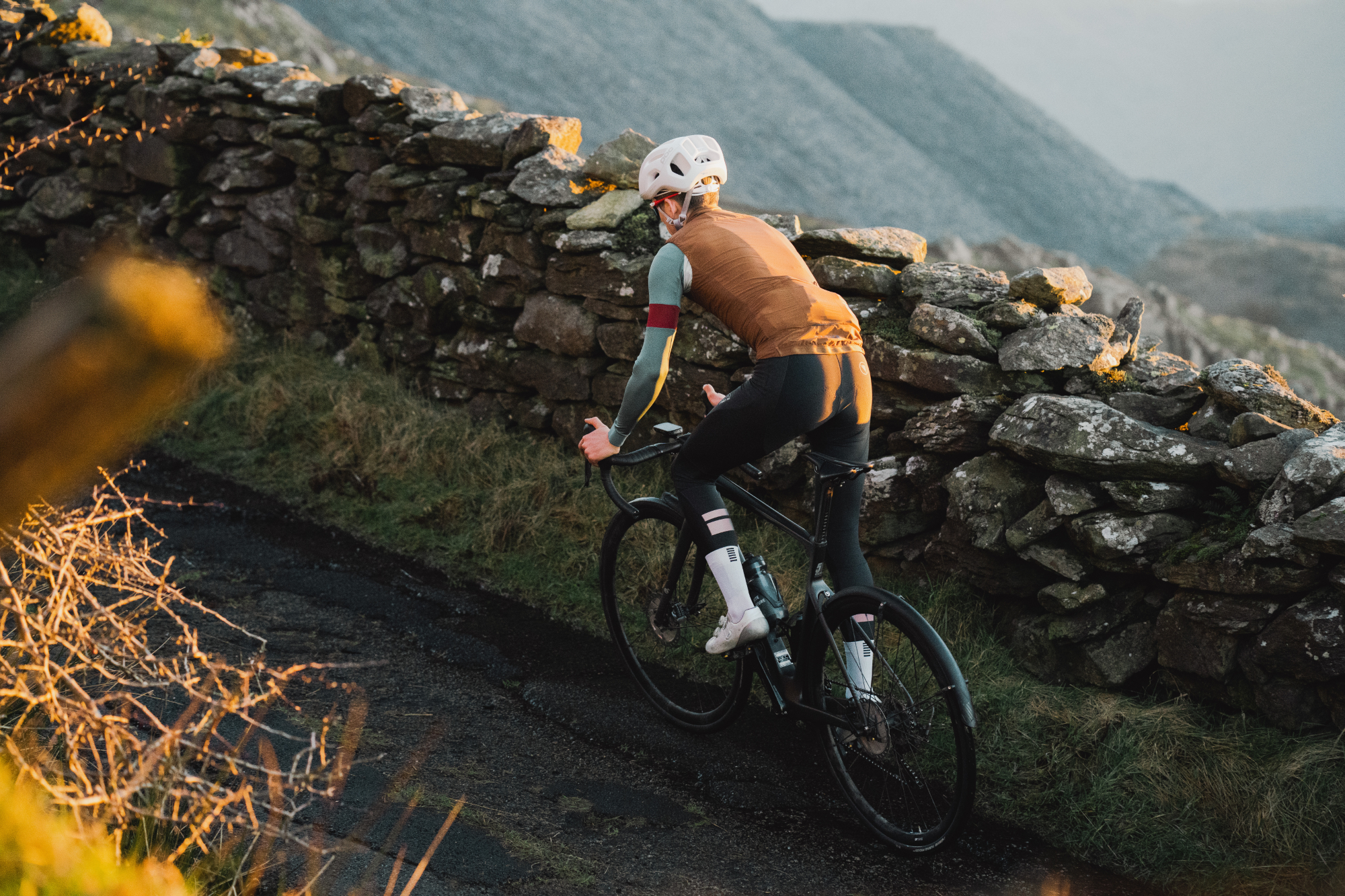Ask a coach: 'What causes café legs, that heavy feeling after a short break?'
Leaving the comfort of a café is made doubly worse by that feeling that you've lost all your fitness - here's what's going on in your body...


We have all experienced just how bad our legs feel after sitting down for the all-important coffee stop. Indeed, we often refer to ‘café legs’ to describe this very phenomenon…. but what exactly is causing it?!

Sports scientist and coach James Spragg is one of the experts who will be answering your questions in Cycling Weekly's ASK A CYCLING COACH series which comes out every Wednesday. Working both in research and applied settings, he currently runs Intercept Performance Consultancy.
When I started thinking about this, I realised that the only other time the legs feel similar is when starting a climb after a long descent. The common themes here being, needing to get going again after a period of rest… once I realised that, I had a good idea about what might be causing café legs.
So, what is happening in the body when we (re)start exercise? As with all physiological responses, it is likely that several processes are happening together, and that is causing us to feel the way we do – in this case like we have instantaneously lost all fitness in the last 20 mins.
Let’s unpack some of what is going on in the body and try and get to the bottom of what causes café legs...
Causes of 'café legs'

Oxygen uptake
Whenever we start cycling, or suddenly increase the intensity, there is a lag between when we start making the effort and when we start breathing harder – exercise physiologists called this VO2 kinetics but that’s just a fancy way to say that it takes a bit of time for oxygen uptake and delivery to the muscles to catch up with the oxygen demand.
During this time, we are heavily reliant upon energy systems that don’t require oxygen (and resultantly burn more carbohydrate than normal – this will become important!) and we accrue an oxygen debt. Once we are up and running this oxygen debt gets ‘re paid’ by us breathing that little bit harder and taking in more oxygen than we actually need. The harder we go in this initial period the bigger the oxygen debt. The oxygen debt per se is not really a problem, this issue is the physiological changes that happen in the working muscles. During this period, because we rely upon what exercise physiologists call ‘non-oxidative pathways’ we accumulate several substances (known as metabolites) in the muscles that together not only make our muscles a little less efficient but also create that (all too well-known) burning sensation.
The latest race content, interviews, features, reviews and expert buying guides, direct to your inbox!

This is why ‘café legs’ feel quite similar to how our legs can feel after a hard sprint. However, as I mentioned, there are likely other factors at play.
Blood glucose
It’s quite likely that even if we have had a slice of our favourite cake blood sugar levels will be a little low when we jump back on the bike. It’s quite likely (especially if we have been going hard) that, before the coffee stop we used up a lot of the glycogen stored in our muscles. After eating carbohydrates, we produce insulin, this is all part of the recovery process that allows us to replenish our glycogen stores.
However, when we restart cycling, due to the low muscle glycogen levels and high insulin levels, the muscles up-take more glucose from the blood than the body is ready for. The net effect of this is that blood sugar levels drop slight – this is what nutritionists call hypoglycaemia. It takes a little time for the body to release glycogen stored in the liver into the blood stream and return to the levels they were at during prior exercise.
Combine these two factors – oxygen delivery that isn’t yet quite up to speed, a reliance on burning more carbohydrates than usual, and a small drop in blood glucose, and you can see why your body (and legs!) might not like it.
How to minimise café legs
Now, if you are a little late leaving the café and need to sprint to away to catch up with our mates, then it’s almost inevitable that those dreaded café legs are going to hit you a few 100 metres down the road. So, my first piece of advice is to be the first one to pay on the group ride and make your mates chase you as you ride away casually!
Now, if you are of a more social nature, and like to all leave together as a group, then my advice would be to have something sugary around 5 mins before you leave the café. This should help to restore blood glucose levels before you start out again.
On top of that, don’t set off too hard and make sure you give yourself a few minutes to ride in to things again. If that doesn’t do the trick and the dreaded café legs do strike, at least take solace in the fact that within a few minutes everything will settle back down, and you will feel just fine.
In this age of online training plans and workouts, do you ever find yourself with a burning question you’d like to directly ask a cycling coach? Well, now is your chance to ask away! In this series, we’ll be putting your questions to expert coaches – send them in at anna.abram@futurenet.com.
James Spragg is a sports scientist and coach, working both in research and applied settings. When not working with athletes James can be found skiing, climbing, cycling or drinking coffee!
Alongside Dan Lorang and Peter Leo, James runs Intercept Performance Consultancy. Over the last 8 years in various roles, as coaches, performance consultants, performance managers, and sports scientists, Dan, James and Peter have played a role in helping athletes achieve more than 10 World Championship titles, several Olympics medals (including a Gold and Silver Medal in Tokyo 2020) and several Top 5 results in some of the biggest sporting events on the planet (Tour de France, Olympics, World and European Championships). Our single focus is on improving performance in all settings.